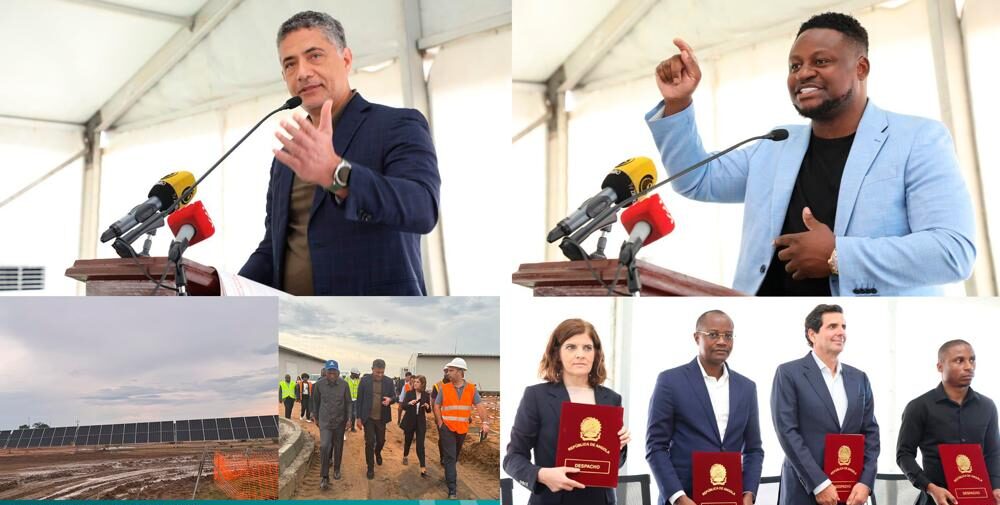As part of the Angola 2025 Plan, implemented by the Angolan government to enhance electrification rates through environmentally sustainable energy sources, over one million individuals across 60 communes in Angola will have access to public grid electricity.
In alignment with Angola’s electrification efforts, a ceremony marking the commencement of the Moxico Province Rural Electrification Project took place on Thursday afternoon, November 16, in Luau Municipality. The event, overseen by the Minister of Energy and Water, included the provincial Governor, Ernesto Muangala, and ambassadors from Portugal, Francisco Alegre, and Germany, Stefan Traumann. Senior officials from the energy sector, including representatives from DNNER, PRODE, ENDE, and the project’s patron, musician Matias Damásio, also attended.
Following the ceremony and laying of the foundation stone, a contract was signed between the public company PRODEL, representing the Angolan state, and the Portuguese Group MCA as the primary contractor.
Minister João Baptista Borges emphasized that this project is a key priority for President João Lourenço, aimed at providing electricity access to remote families, thus fostering economic and social development in these areas.
The project entails designing and developing engineering works, constructing hybrid photovoltaic systems with lithium-ion battery storage, and expanding the electrical grid with new distribution networks across 12 localities. This initiative will enable the country to have cleaner and more cost-effective energy, with plans to connect approximately 59,000 households via prepaid systems, benefiting more than 370,000 people.
In Luau, the project targets around 59,370 individuals. A photovoltaic park with 55,500 solar panels and a production capacity of 58 MWp will be established.
The Luau Rural Electrification Project is budgeted at over €1,027,587,914.00, with completion expected within three years (36 months) from the contract signing date.
Following the event, the minister visited Luena municipality to assess the progress of the city’s photovoltaic park implementation, which is currently 95% physically complete and will have a capacity of 26.906 MWdc. João Baptista Borges João Baptista Borges








